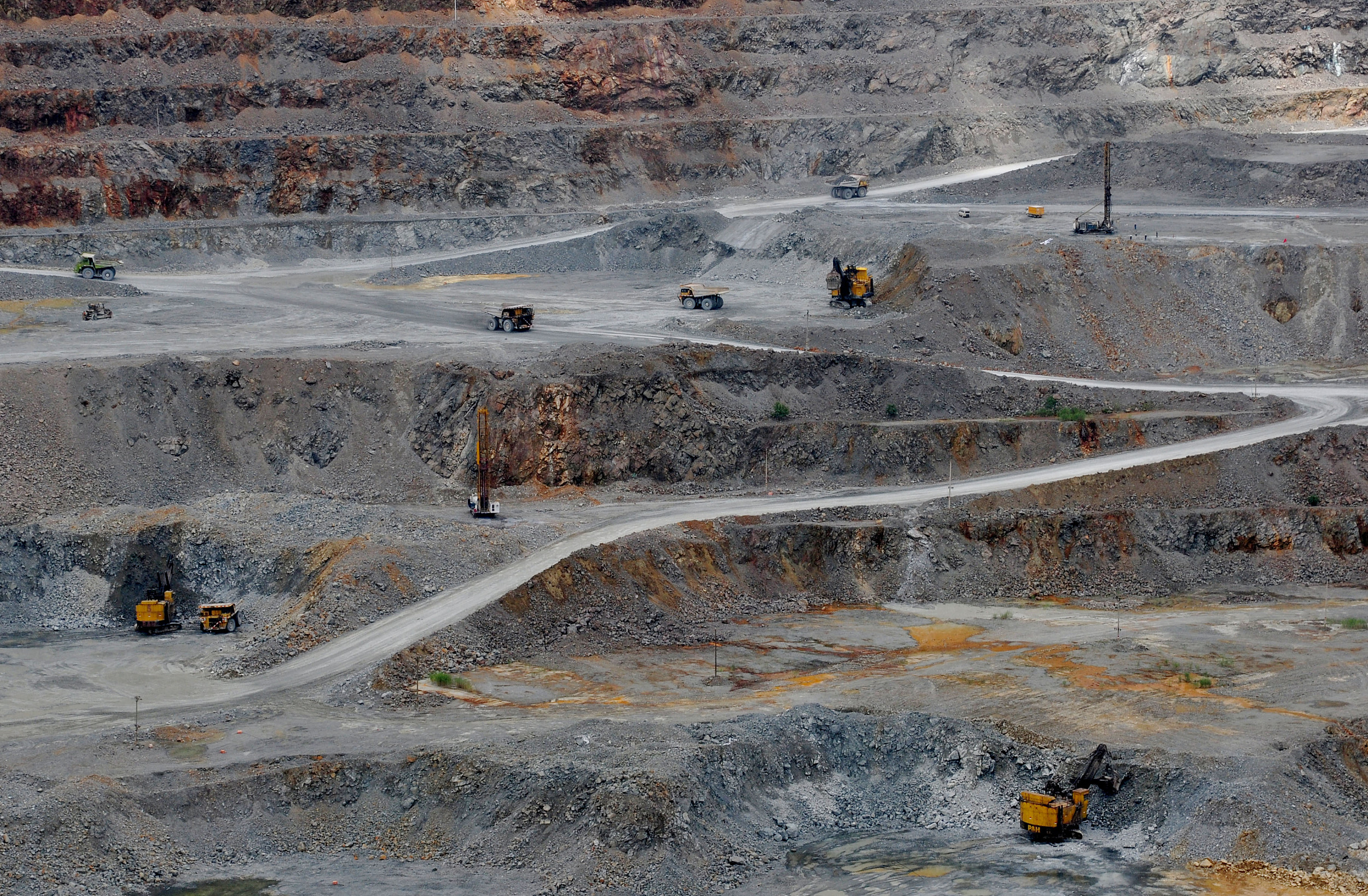Extracting Copper from Water: The Earliest Hydrometallurgy

Trucks mine and transport ore at the Dexing Copper Mine in Jiangxi province, the largest open-pit copper mine in Asia. During the Tang (618-907) and Song (960-1279) Dynasties, copper hydrometallurgy was employed at this mine. (PHOTO: VCG)
By ZONG Shihan
Legend has it that there was a spring in the present day Yanshan county, Jiangxi province, where the water was not sweet but bitter. Local villagers discovered that through boiling this spring water, they could extract gleaming yellow copper. Intrigued, Shen Kuo (1031-1095) traveled to witness this process and documented it in his book Dream Pool Essays.
Yanshan county is blessed with abundant copper mines containing sulfur- rich ore. Through a combination of chemical and physical reactions like oxidation and weathering, copper sulfate is formed and seeps into the spring water, causing it to become bitter. By introducing iron pieces into the bitter spring water, the reactive iron displaces the copper, resulting in pure copper precipitation. This ancient method is known as copper hydrometallurgy.
This method boasts several advantages. It can be performed on- site with minimal equipment, straightforward procedures, and low costs. Copper can be extracted at room temperature, saving fuel. Additionally, it accommodates both low-grade and high-grade copper ores.
However, copper hydrometallurgy has limitations. It depends on the abundant bitter spring water in the spring and summer seasons, making it vulnerable to fluctuating climates. Insufficient rainfall diminishes the volume of bitter spring water, hampering large-scale copper production. With the development of modern smelting technology, copper pyrometallurgy has been rapidly developed to become the preferred method of smelting copper.
Despite this, as the earliest known method of hydrometallurgy originated in China, it holds a significant place in the history of the world metallurgy.






